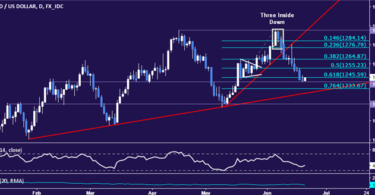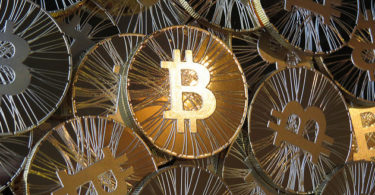The much-anticipated rise in inflation is beginning to show up in the data, with April's Consumer Price Index showing the biggest annual gain in more than a decade.
Wednesday's consumer price index report showed a year-over-year rise of 4.2% and 0.8% since March.
While officials from the Federal Reserve and the Biden administration have said the inflation could prove to be temporary, pointing to effects from the pandemic on last year's data and pent-up demand, the data is still moving markets.
Significant inflationary pressure is here, and you may have already seen prices rise for a variety of goods. What comes next is less clear, so I put together a panel of three experts and asked them to shed some light on the situation and how they're approaching it.
Here are their thoughts on how investors can navigate the rising inflation.
Consider the classic safe havens, but stay flexible
Keith Noonan: Rapid inflation is a worrying prospect. If you've worked hard to save money, the threat of its purchasing power being quickly diminished probably hits like a kick in the gut. Staring down that threat, there's a natural impulse to get into safe assets — and get into them as quickly as possible. At the same time, it's important to survey the situation as it currently is and not make the assumption that previously successful strategies will be completely reliable this go around.
The U.S. Federal Reserve Bank and other central banks around the world have printed a record amount of new money in order to mediate economic pressures created by the coronavirus pandemic. Now, many economies are beginning to reopen. That's leading to increased money circulation, but supply chain issues and other fiscal policy initiatives are also at play. The combination of dynamics is leading to pricing increases for commodities, manufacturing, and even parts of the service economy. Charting equity and asset prices is messy business right now, to put it mildly.
Inflation is inflation, but the factors driving the phenomena are unique to this point in time, and there's an incredible array of variables for investors to consider. The sentiment may sound repetitive and trite at this point, but it's still fair to say we're living through an unprecedented situation.
High-quality stocks, precious metals including gold and silver, and real estate have traditionally been good safeguards against inflationary pressures. Each of these categories comes with its own unique set of benefits and risk factors, and investors should proceed with the understanding that there's no sure-fire answer to the inflation question with so much uncertainty on the horizon. While the real estate market is already red hot and some analysts have raised reasonable concerns about a potential housing bubble, buying property is currently what I'm looking closest at.
Significant inflation appears to be taking place and could worsen, but I also have to confess that I'm keeping a substantial portion of my holdings in cash right now. I expect that will change by the end of the year, but for the time being, I'm comfortable waiting for more information to come in with the hope it provides more clarity about the best path forward.
The inflation risk isn't necessarily global
James Brumley: One thing U.S. investors should bear in mind is, the inflation they're worried about is a loss of the U.S. dollar's buying power. That doesn't necessarily mean other countries' currencies will follow suit and disrupt their consumer-driven economies as a result.
No country operates in an economic silo anymore, of course. But not even the world's biggest trade dependencies are as big as you might think. China's best overseas market is the U.S., but we still only buy between 15% and 20% of its total exports. Other countries and regions buy considerably less.
My point is, if you're afraid domestic inflation is brewing, adding international exposure to your portfolio helps offset that risk. Something like the Vanguard FTSE All-World ex-US ETF (NYSEMKT:VEU) could do the trick nicely. And if that's not quite esoteric enough for you, think about countries that are well separated from U.S. dollars, or regions that are growing so briskly that a weak U.S. dollar isn't a problem. That puts exchange-traded funds like the iShares MSCI Frontier 100 ETF (NYSEMKT:FM) or the SPDR S&P Emerging Markets Small Cap ETF (NYSEMKT:EWX) in focus.
These funds can't completely shield you from the inflationary forces manifesting within the U.S., to be clear. But they can certainly offer a fair degree of protection from them without getting you altogether out of the market.
Full story on Fool.com






